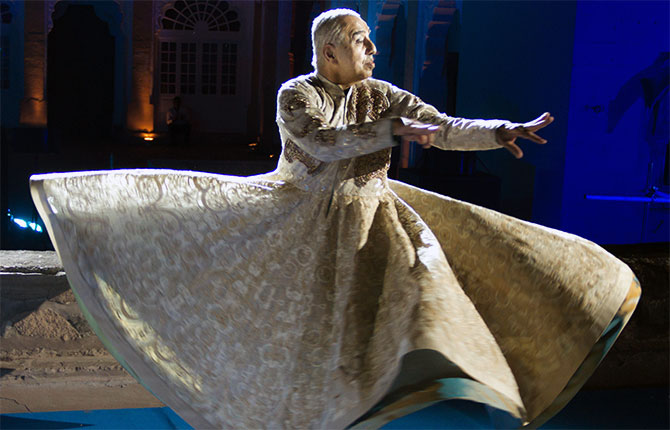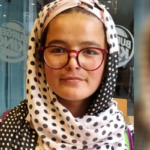Contemporary Indian dancer Astad Deboo, known for amalgamating Indian and western dance techniques, died in Mumbai on Thursday, his family said. He was 73.
He was suffering from lymphoma, a type of blood cancer that develops when white blood cells called lymphocytes grow out of control, a close family friend said.
Deboo employed his training in Indian classical dance forms of Kathak as well as Kathakali to create a unique fusion dance form.
‘He left us in the early hours of December 10, at his home in Mumbai, after a brief illness, bravely borne,’ the family announced on social media.
‘He leaves behind a formidable legacy of unforgettable performances combined with an unswerving dedication to his art, matched only by his huge, loving heart that gained him thousands of friends and a vast, number of admirers,’ it said.
According to Padma Alva, a longtime friend of Deboo and a former PTI journalist, his funeral was a private affair due to the COVID-19 restrictions.
“The funeral was held at Worli here (Mumbai) at 11 am. It was a private funeral because of COVID restrictions. So only immediate family members were present,” Alva said.
Deboo is noted for creating a modern dance vocabulary that was uniquely Indian.
He once said there was a time when most Indians saw his style as ‘too western’ while westerners found that it was ‘not Indian enough’.
His innovative style of Indian dance may have raised some eyebrows in the 1970s and 80s, but the 1990s saw people embrace this new idiom.
Recalling their bond of over four decades, Alva said she has lost a a ‘friend of a lifetime’.
“Astad called me a few days ago to say it was goodbye. We were in touch every day till Monday when he went under, never to come up again. Have lost a friend of 42 years, a friend of a lifetime,” Alva said.
Actor Anupam Kher took to Twitter to pay tributes to the dance icon and wrote Deboo’s art would be missed.
‘World of modern dance has lost a pioneer and India has lost a cultural treasure. Dearest #AstadDeboo it was a privilege to know you. Will miss your art, warm persona and your infectious smile! Rest in peace my friend!!#OmShanti,’ Kher said.
Film maker Nandita Das said Deboo had a lot of dance still left in him.
‘Just too sad. Knew him and admired him since I was a child. You still had so much to offer #AstadDeboo I have lost too many loved ones this year,’ Das wrote.
Describing Deboo as a ‘powerhouse of talent’, music composer Ehsaan Noorani tweeted that the dancer was a man ‘who pushed the dimensions of dance’.
Casting director Tess Joseph said Deboo was not only a generous person but a ‘visionary and stunning dancer’.
“When Astad danced, time did stand still,” Joseph said.
Born on July 13, 1947 in Navsari town of Gujarat, the dancer, who studied Kathak with Guru Prahlad Das from a young age, and later Kathakali with Guru E K Pannicker, described his style as ‘contemporary in vocabulary and traditional in restraint’.
With a dance career spanning half a century, he had performed in over 70 countries, including solo, group and collaborative choreography with artistes, at home and abroad.
Known for his charitable endeavours, Deboo worked with deaf children, both in India and abroad for two decades.
In 2002, he founded the Astad Deboo Dance Foundation which provided creative training to marginalised sections, including the differently-abled.
‘He has created a dance-theatre style which successfully assimilates Indian and Western techniques,’ said the citation for the the Sangeet Natak Akademi award he received in 1995 for his contribution to contemporary creative dance.
He was also a recipient of the Padma Shri in 2007.
Deboo also forayed into other art disciplines, like films, choreographing for directors such as Mani Ratnam, Vishal Bhardwaj and legendary painter M F Hussain’s Meenaxi: A Tale of Three Cities.




